Advantages of Credit Cards
When it comes to financial management, credit cards can be a great tool for making purchases and managing spending. Credit cards offer several advantages that make them an attractive option for many people. First, credit cards provide convenience and convenience is a major factor for many consumers. With a credit card, you don’t have to worry about carrying cash or writing checks. Instead, you can simply tap or swipe your credit card and the purchase is complete. Second, credit cards offer security. Credit card companies provide fraud protection, which means that if your card is ever stolen or used fraudulently, you’re not held financially responsible. Third, credit cards tend to offer rewards for purchases. Many cards offer points, miles, or cash back that can be redeemed for discounts, free products, or even cash. Fourth, credit cards are a great way to build credit. Using your card responsibly and paying your bill on time can help you build a good credit score.
When it comes to choosing the right credit card, there are a few important things to consider. First, look at the interest rate. The lower the interest rate, the less you’ll have to pay in interest. Second, consider the rewards offered. Some cards offer points or miles that can be redeemed for discounts or free products, while others offer cash back. Third, consider the fees associated with the card. Some cards may have an annual fee, while others may have a balance transfer fee or other fees. Finally, make sure the card meets your needs. If you’re looking for a card to help you build credit, look for a card with low fees and low interest rates. If you’re looking for a card with rewards, make sure you understand the rewards program and how you can maximize the rewards you earn.
By taking the time to understand the different types of credit cards and how to choose the right one, you can make sure you choose the card that best fits your needs and helps you reach your financial goals. Credit cards can be a great tool for managing spending and making purchases, but it’s important to make sure you select the card that offers the best value and meets your needs. With careful research and consideration, you can find the right credit card for you.
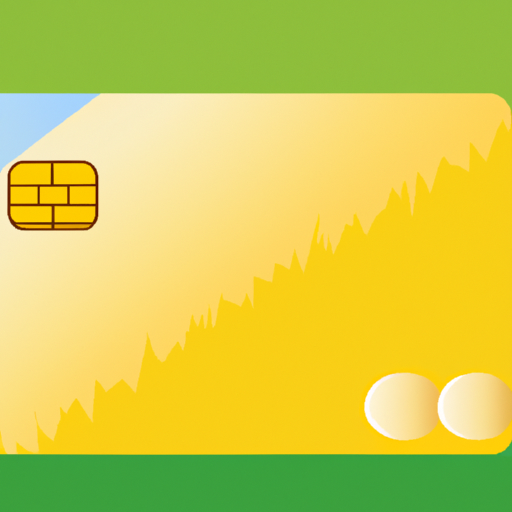
What is a Credit Card?
A credit card is a payment card used to purchase goods and services. It is issued by a financial institution, usually a bank or credit union, and allows the user to access a line of credit for making purchases or taking out cash advances. Credit cards are a popular form of payment due to their convenience and ease of use. They are also a convenient way to build or maintain a credit history.
When you use a credit card, you agree to the terms of the card’s issuer. These terms include the annual percentage rate (APR), the credit limit, and other fees that may be associated with using the card. It is important to understand the terms of a credit card before using it to make purchases.
There are many types of credit cards available. Some of the most common types are secured cards, rewards cards, balance transfer cards, and charge cards. Each type of card has its own set of features and benefits.
Secured cards require a deposit to open and are typically used to help build or rebuild credit. Rewards cards are popular because they offer points or cash back for purchases. Balance transfer cards allow you to transfer balances from other credit cards to a single account, which can help you save money on interest. Charge cards require the full balance to be paid at the end of each billing cycle.
No matter which type of card you choose, it is important to find one that fits your lifestyle and financial goals. Consider your spending habits and determine which type of card will best suit your needs.
Take into account the fees associated with the card, such as annual fees and late payment fees. Consider the APR and other interest rates associated with the card, as well as the rewards or cash back programs.
When you find a card that meets your needs, make sure to read the terms and conditions thoroughly. This will help ensure that you understand all the features and benefits associated with the card.
Finally, it is important to remember that using a credit card responsibly is essential. Pay your bills on time and in full to avoid late fees and build a positive credit history. This can help you qualify for better credit cards with lower interest rates in the future.
Understanding the different types of credit cards and how to choose the right one can help you make the most of your credit. With the right card, you can enjoy the convenience and security of using a credit card while building a healthy credit history.
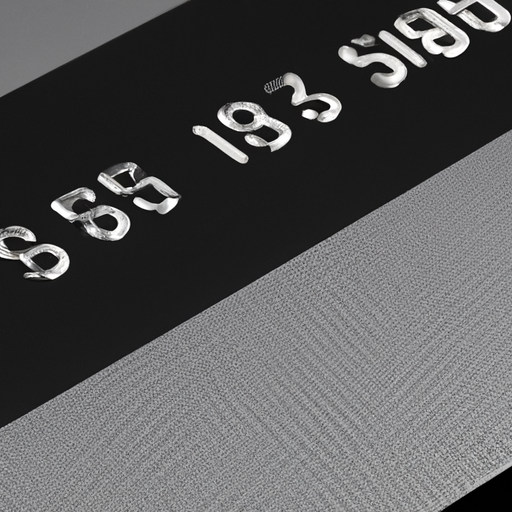
Types of Credit Cards
When it comes to understanding different types of credit cards and how to choose the right one, it can be a daunting task. With so many different options and features, it can be hard to know which card will best fit your needs. That’s why it’s important to understand the different types of credit cards and their features before making any decisions.
Cash back cards are a type of credit card that offer you a percentage of money back for each purchase you make. These cards typically have a set percentage of money back for each purchase, such as 1% or 2% back. They can be great for anyone who wants to save money on everyday purchases. Cash back cards can also be a great way to earn rewards on larger purchases, such as travel or electronics.
Travel rewards cards are a type of credit card that offer rewards based on the amount of money you spend. These cards typically offer points or miles for each dollar you spend. You can then use the points or miles you earn to purchase tickets, hotels or other travel expenses. This can be an excellent way to save money on travel if you use your card responsibly.
Balance transfer cards are a type of credit card that allows you to transfer the balance of another credit card to the balance transfer card. These cards typically offer a low interest rate for a limited time, making them a great way to save money on interest payments. It’s important to keep in mind, however, that balance transfer cards usually come with a fee.
No annual fee cards are a type of credit card that does not charge an annual fee. These cards are great for anyone who wants to avoid paying an annual fee. No annual fee cards usually have lower interest rates and fewer rewards than other credit cards.
Low interest cards are a type of credit card that offer a low interest rate on purchases. These cards can be a great way to save money on interest payments if you carry a balance. Low interest cards typically have fewer rewards than other types of cards and may have higher fees.
Rewards cards are a type of credit card that offer rewards for spending. These cards typically offer points or miles for each dollar you spend. You can then use the points or miles you earn to purchase items, such as merchandise, travel, or gift cards. Rewards cards are great for anyone who wants to earn rewards on everyday purchases.
Secured cards are a type of credit card that requires a security deposit to open. These cards are usually an excellent way to build or rebuild credit. Secured cards usually have lower credit limits and higher interest rates than other types of cards.
When it comes to choosing the right credit card for you, it’s important to consider all of your options. Different types of credit cards come with different features and rewards, so it’s important to take the time to compare the different cards and find the one that best fits your needs. By understanding the different types of credit cards, you can make an informed decision and choose the card that’s right for you.
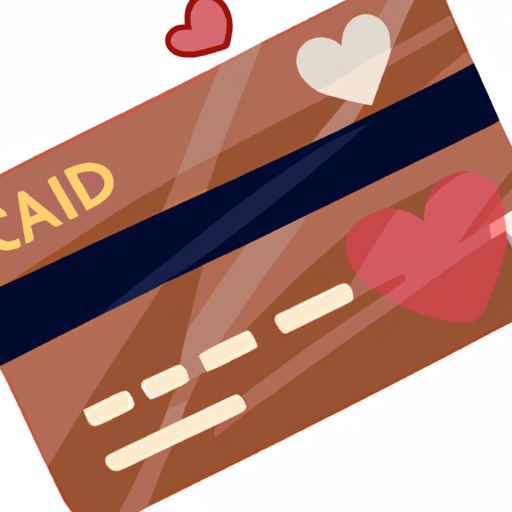
Disadvantages of Credit Cards
Credit cards can be a great way to make purchases and manage your money. However, they also come with certain disadvantages that should be taken into consideration before you apply for one. It is important to be aware of the potential risks associated with using a credit card, as well as the terms and conditions of your credit card agreement.
One of the most common disadvantages of credit cards is the potential for high-interest rates. Most credit cards come with an annual percentage rate (APR) that is significantly higher than rates offered by other forms of borrowing. This means that it can be more expensive to borrow money with a credit card, especially over the long-term. Additionally, the APR on credit cards can change over time, so it’s important to read the fine print of your agreement carefully to be aware of any changes.
Another disadvantage of credit cards is the potential for late fees and other penalties. If you are unable to make the minimum payment on your card in a timely manner, you will be charged additional fees. These fees can add up quickly, so it’s important to make sure that you are able to make the necessary payments each month. Additionally, if you exceed the credit limit on your card, you may be subject to additional fees.
Credit cards also come with the potential for other fees, such as cash advance fees. If you use your credit card to withdraw cash from an ATM or make a purchase that requires you to pay a cash advance fee, you may be subject to additional charges. Additionally, some credit cards may also have an annual fee. This fee is typically charged to cover the cost of providing the card.
Finally, it’s important to remember that credit cards can also have a negative effect on your credit score. If you carry a high balance on your card or make late payments, your credit score could suffer. Additionally, if you apply for more credit than you can handle, it could have a negative impact on your score.
Overall, credit cards can be a great tool for managing your money, but it’s important to be aware of the potential risks associated with them. It’s important to be informed of the terms and conditions of your credit card agreement, as well as the potential for high-interest rates and other fees. Additionally, be sure to use your credit responsibly in order to avoid negative impacts on your credit score. Understanding the potential disadvantages of credit cards can help you make an informed decision when choosing the right card for your needs.
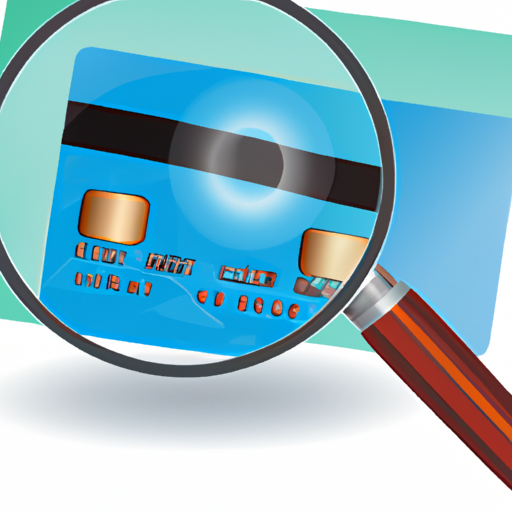
Factors to Consider When Choosing a Credit Card
When it comes to choosing the right credit card for your needs, it can be confusing to understand the different types of cards and their benefits and drawbacks. Knowing the factors to consider when selecting a card that is right for you can help make the process go smoothly and ensure you get the best card for your particular situation.
First, consider the type of credit card you are looking for. Are you looking for a rewards card, a travel card, or a low-interest card? Each type of card has its own benefits and drawbacks, so it’s important to understand what type of card you need in order to make the best decision. For example, a rewards card will give you more rewards for purchases, but the interest rates may be higher than a low-interest card.
Second, consider the fees associated with the card. Many cards come with an annual fee, late fees, and other fees that can add up over time. Make sure to look into the fees carefully before making a decision.
Third, look at the APR (Annual Percentage Rate). This is the interest rate that you will pay on any outstanding balance. Make sure you get a card with an APR that you can afford to pay.
Fourth, consider the available credit limit. The credit limit is the maximum amount of money you can borrow on the card. If you have a higher credit limit, you may have more flexibility in the purchases you can make.
Fifth, look into the rewards program associated with the card. Many cards offer rewards such as points, cash back, or miles. Make sure that the rewards program is something that you will use and that you understand the redemption process.
Sixth, look into the customer service offered by the credit card company. Find out what type of customer service is available, such as online support or telephone support. This will help you if you ever need assistance with your card.
Seventh, consider the card’s fraud protection policies. Make sure the card has a good fraud protection policy that will protect you if your card is ever stolen or used without your permission.
Finally, make sure you understand the terms and conditions associated with the card. Make sure you read through the fine print and understand the rules and regulations associated with the card before you make a decision.
Choosing the right credit card can be a daunting task, but understanding the different types of cards and their benefits and drawbacks can help make the process easier. Consider the type of card you need, the fees associated with it, the APR, the credit limit, the rewards program, the customer service, the fraud protection policies, and the terms and conditions before making a decision. This will help you make sure you get the right card for your unique needs.
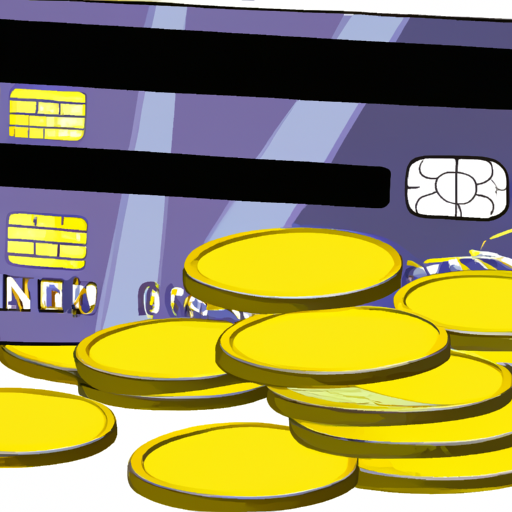
Interest Rates and Fees
When it comes to choosing the right credit card, one of the most important factors to consider is the interest rate and fees associated with the card. It’s important to understand how interest rates and fees can affect the overall cost of using a credit card and how they can impact your financial decisions.
Interest rates are the fees charged by the credit card companies for borrowing money. The higher the interest rate, the more expensive it can be to borrow money with a credit card. For example, if you have a credit card with a high interest rate, you may end up paying more in interest than you would with a lower rate. On the other hand, if you have a low interest rate, you may be able to save money on your credit card payments.
Fees are also a factor to consider when you’re looking for the right credit card. Fees can range from annual fees, late fees, balance transfer fees, and more. Although fees can be costly, some cards may have lower fees than others. Depending on the type of credit card you have, you may be able to save money on fees by looking for cards with no annual fee or low balance transfer fees.
When it comes to understanding interest rates and fees, it’s important to read the fine print and do your research. Many credit cards have different terms and conditions, so it’s best to read and compare the terms before you commit to a card. Additionally, it’s important to pay attention to the rewards and perks offered by the card. Some cards may offer cash back, travel rewards, and other benefits that can help you save money.
Ultimately, the right credit card for you will depend on your spending habits, budget, and financial goals. If you want to save money on interest and fees, you may want to look for a card with a low interest rate and no annual fee. Alternatively, if you’re looking to maximize rewards, you may want to seek out a card with high rewards and attractive perks.
Before you choose a credit card, make sure to read the terms and conditions, compare different cards, and consider what your financial goals are. With a little research and knowledge, you can find the perfect card to meet your needs.

Credit Card Rewards
Credit cards are a great way to manage your money and can be a helpful tool when it comes to budgeting. But there’s a lot to consider when choosing a credit card, from the type of card to the rewards it offers. One of the most important things to consider when selecting a credit card is the rewards it offers.
Credit card rewards come in a variety of forms and can range from cashback to travel rewards. Cashback rewards are a great way to get money back on all of your purchases and can help you save money each month. Cashback rewards can be earned in a variety of ways, such as a percentage of all purchases or a certain amount of cashback for certain purchases.
Travel rewards are also a great way to save money when using a credit card. Travel rewards credit cards typically offer points or miles for each dollar spent, which can be redeemed for flights, hotels, and more. With these types of cards, you can earn points or miles for each purchase you make, and then redeem them for travel-related rewards.
Another type of rewards credit card is a store-specific card. These cards offer rewards for purchases made at a particular store, such as a department store or grocery store. These cards typically offer bonus points for purchases made at the store and can help you save money on all of your purchases.
When selecting a credit card, it’s important to consider the rewards that are offered and make sure that the rewards fit your lifestyle and needs. You also want to make sure that you understand the terms and conditions of the rewards program so that you can maximize your rewards.
Finally, it’s important to consider the fees associated with the card. Many rewards cards have annual fees, so it’s important to make sure you understand what those fees are and how they will impact your spending.
Choosing the right credit card rewards program can be a great way to save money and take advantage of the benefits that come with using a credit card. There are a variety of rewards cards available, so make sure to do your research and find the one that’s right for you. With the right rewards program, you can save money and enjoy the benefits of using your credit card.

Credit Card Limits
Credit card limits are the maximum amount of money you can borrow from a credit card issuer in a single billing cycle. Credit card limits are important to consider when selecting a credit card. Knowing your credit card limit can help you manage your spending, avoid late payments, and keep your credit score in good shape.
When selecting a credit card, you should ask yourself if the credit limit is reasonable for your lifestyle and spending habits. Credit card issuers will typically assign you a credit limit based on your credit score and other factors. This means that if you have a low credit score, you may only be offered a low credit limit, which could limit your ability to make large purchases. Higher credit limits may also be available to those with higher credit scores, but it is important to remember that having a higher credit limit doesn’t necessarily mean you should spend more.
When determining your credit card limit, it is important to consider your budget. If you plan to use the card to make large purchases, such as a car or home, then a higher credit limit may be appropriate. However, if you only plan to use the card for everyday purchases, such as groceries and gas, then a lower limit may be sufficient.
It is also important to consider the interest rate associated with the credit card when selecting a card. A higher credit limit can often come with higher interest rates. This means that you may end up paying more in interest over time if you carry a balance on the card.
Finally, it is important to consider the fees associated with the credit card. Fees can include an annual fee, balance transfer fees, and foreign transaction fees. These fees can add up quickly, so it is important to make sure the fees are worth the benefits of the card.
By considering credit limits, budget, interest rates, and fees, you can select the right credit card for your lifestyle and spending habits. Credit cards can be a great way to build credit and manage your finances, but it is important to select the right card for you. With the right card, you can reap the rewards of having a credit card without the risks.


